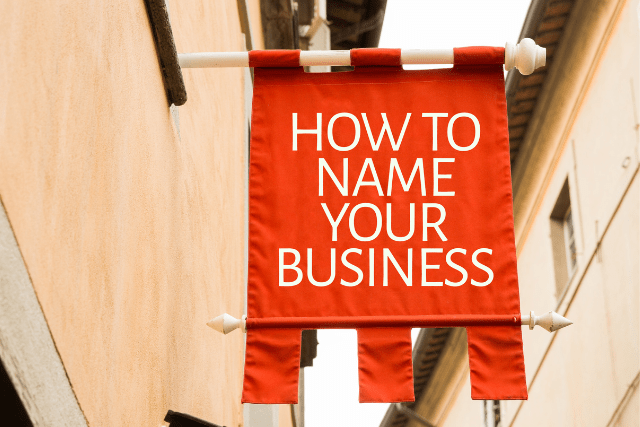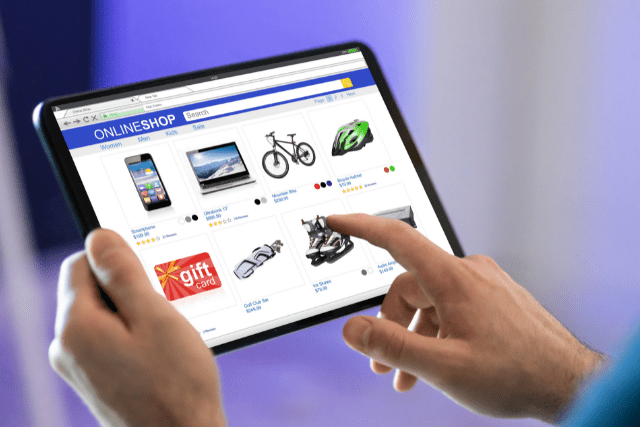Choosing the right name for your business is crucial as it can greatly impact your brand’s success. A well-crafted business name helps establish your brand identity, attracts customers, and sets you apart from competitors.
However, finding the perfect business name can be a challenging task. This article will explore a step-by-step process to help you find the ideal name for your business.
Table of Contents
Key Takeaways
- Understand your brand, gather diverse perspectives, brainstorm, and use techniques like mind mapping and free association.
- Use online surveys, focus groups, social media polls, and A/B testing. Check for cultural sensitivity.
- Check if the name is trademarked or used by another business. Check the domain and social media availability.
- Platforms like GoDaddy, Namecheap, Bluehost, Domain.com, Hover, Dynadot, and Google Domains can be used to purchase domain names.
- Choose a name that allows for future business growth and doesn’t limit you to a specific product or service.
Why having the perfect business name is important?
The perfect business name for an online store is crucial for several reasons. In this response, we will discuss the importance of having a great business name for your online store.
Branding
Your business name is the first thing customers will see and remember about your online store. It is the foundation of your brand identity and sets the tone for your entire business. A great and catchy business name can help you stand out and create a strong brand image that resonates with your target audience.
Memorability
A memorable business name is essential for an online store. It should clearly describe your business. Customers are more likely to remember a catchy and unique name, which can help increase brand recognition and customer loyalty. A great business name can also make it easier for customers to find and recommend your online store to others.
Search Engine Optimization (SEO)
A great business name can also improve your online store’s search engine optimization (SEO). A unique and relevant business name can help your online store rank higher in search engine results pages (SERPs) and attract more organic traffic. Choosing a business name that is easy to spell, pronounce, and remember is important, as this can also impact your SEO efforts.
Legal Considerations
Choosing the right business name is also important from a legal perspective. You need to ensure that your business name is not already trademarked or being used by another business. Registering your business name with the appropriate government agencies is also important to protect your brand and avoid legal issues in the future.
It is important to take the time to choose a unique and relevant business name that resonates with your target audience and sets your online store apart from the competition.
The challenges of finding the great business name
Finding the right business name can be a challenging task for many entrepreneurs. This response will discuss the common challenges of choosing the perfect business name for your online store.
Availability
One of the biggest challenges of finding the right business name is availability. You need to ensure that your business name is not already taken or being used by another business. This process can be time-consuming, as you must thoroughly search existing business names and trademarks. It is important to choose a unique and relevant business name that is not too similar to existing brands to avoid legal issues in the future.
Relevance
Your business name should be relevant to your online store’s products or services. It should reflect your brand identity and resonate with your target audience. Choosing a name that is too generic or unrelated to your business can make it difficult for customers to remember and find your online store. Choosing a name that is easy to spell, pronounce, and remember is important, as this can also impact your SEO efforts.
Creativity
A great business name should be creative and unique. It should stand out from the competition and capture the essence of your brand. However, creating a creative and memorable business name can be daunting for many entrepreneurs. It requires a lot of brainstorming, research, and creativity to create a unique and relevant name.
Future Growth
Your business name should also be able to accommodate future growth and expansion. It should not limit your business to a specific product or service, as this can make it difficult to pivot or expand in the future. Choosing a name that is flexible and adaptable to changes in your business model is important.
Choosing a unique and relevant business name that is not already taken, reflects your brand identity, and resonates with your target audience is important. With the right approach and mindset, you can overcome the challenges of finding the perfect business name for your online store.
Types of Brand Names
Brand names are essential to any business as they help identify and differentiate a company’s products or services from its competitors. There are several brand names, each with unique characteristics and advantages. Here are the five categories of brand names:
1. Descriptive Brand Names
Descriptive brand names are straightforward and describe the company’s product or service. These names are easy to understand and remember, making them an excellent choice for new businesses or products. Examples of descriptive brand names include General Electric, Toys “R” Us, and Best Buy.
2. Acronymic Brand Names
Acronymic brand names are created using the initials of the company’s name or a phrase describing the company’s products or services. These names are easy to remember and can be used to create a unique identity for the company. Examples of acronymic brand names include IBM, UPS, and NASA.
3. Evocative Brand Names
Evocative brand names are created by using words that evoke emotions or images related to the company’s product or service. These names are memorable and can help to create a strong emotional connection with customers. Examples of evocative brand names include Apple, Amazon, and Nike.
4. Neologistic Brand Names
Neologistic brand names are created by combining two or more words to create a new word that is unique and memorable. These names are often used by technology companies or startups to create a unique identity for their products or services. Examples of neologistic brand names include Instagram, Pinterest, and Snapchat.
5. Foreign Brand Names
Foreign brand names are created by using words from a foreign language to create a unique identity for the company. These names can be memorable and help create a sense of sophistication or exclusivity. Examples of foreign brand names include Audi, Samsung, and Sony.
Each type of brand name has its unique advantages and disadvantages, and the choice of a brand name depends on the company’s goals, target audience, and marketing strategy. Choosing a brand name that is easy to remember, unique, and relevant to the company’s products or services is essential.
Brainstorming
Brainstorming is a crucial part of the brand naming process. It involves generating many ideas, which can then be refined and evaluated. Here’s a step-by-step guide to brainstorming a name for your startup:
- Understand Your Brand: Every effective brainstorming session begins with understanding your brand’s identity. Write down words that best describe your brand’s mission, vision, values, and unique selling points. Think about the emotions you want your brand to evoke, the audience you are targeting, and the industry you operate in. This will set the stage for the kind of names you should brainstorm.
- Assemble a Diverse Team: Gather a team of individuals with different perspectives. This could be your co-founders, team members, friends, or even some representatives from your target audience. Diverse viewpoints can often lead to unexpected and creative ideas.
- Create a Safe and Open Environment: Encourage an environment where all ideas are welcome, and there are no wrong answers. This free-flowing, open discussion often results in the most creative ideas. You never know where a seemingly odd suggestion might lead.
- Utilize Brainstorming Techniques: There are several techniques you can use:
- Mind Mapping: Start with a central idea (like your product or value proposition) and branch out with related words or concepts.
- Free Association: Say a word related to your brand and have participants say the first thing that comes to mind. This can lead to unexpected connections.
- SWOT Analysis: Examine your Strengths, Weaknesses, Opportunities, and Threats. This can better understand your market standing and inspire names that play to your strengths and opportunities.
- Use of Tools: Online name generators or thesauruses can spark new ideas.
- Be Patient and Take Breaks: Creativity often comes in waves, and forcing ideas can lead to frustration. Breaks can help rejuvenate the mind and bring fresh perspectives.
- Shortlisting and Refinement: After generating a large list, narrow it down. Filter out names that don’t align with your brand, are too complex, or may lead to negative or unintended connotations.
- Check for Availability: Use a tool like Namechk to verify the domain and social media handle availability. Check with the trademark office to ensure your name doesn’t infringe on any existing trademarks.
- Get Feedback: Share your top choices with a broader audience. This could be through social media polls, surveys, or focus groups. Monitor the reactions carefully.
- Final Selection: Select your brand name based on feedback and your team’s input. Make sure it is a name you feel confident with and will represent your business well in the coming years.
Remember, creating a brand name is both a strategic and creative process. It takes time and should not be rushed. The right name can significantly impact your brand’s perception and success.
How to utilize a word association exercise?
Start by brainstorming a list of relevant keywords related to your business. Write down words that reflect your brand’s personality, values, and offerings. Then, expand the list by using word association techniques. Associate each keyword with related words and concepts. This exercise will help generate new ideas and associations that might inspire the perfect business name.
Searching for inspiration from your personal life
Your personal experiences, hobbies, or interests can inspire your business name. Consider elements from your life that align with your brand and explore how they can be incorporated into your business name. This personal touch can add authenticity and uniqueness to your brand.
Best Business Name Generators for Online Store
Creating a brand name for your online store can be challenging to create something unique and memorable. Fortunately, several brand name generators are available online to help you generate ideas and find the perfect name for your business. Here are some of the best brand name generators for online stores:
- Shopify Business Name Generator: This free tool generates business name ideas based on the keywords you enter. It also checks the availability of domain names and social media handles for your chosen name.
- NameMesh: This is a powerful tool that generates a variety of business name ideas based on your keywords. It also checks the availability of domain names and social media handles for your chosen name.
- BrandBucket: This premium brand name generator offers a curated selection of brandable domain names for sale. The names are carefully selected based on uniqueness, memorability, and brand-ability.
- Naminum: This simple tool generates business name ideas based on the keywords you enter. It also allows you to filter the results by length and domain availability.
- Oberlo Business Name Generator: This free tool generates business name ideas based on the keywords you enter. It also checks the availability of domain names for your chosen name.
- Squadhelp: This premium brand name generator offers a crowdsourced approach to naming your business. You can launch a naming contest and receive hundreds of name ideas from a community of naming experts.
All the above brand name generators can be a great starting point for creating a unique and memorable name for your online store. However, it’s important to remember that the name you choose should also be relevant to your brand and resonate with your target audience.
Best Domain Name Generators
Many domain name generators are available online, each with unique features and benefits. Here are some of the best domain name generators:
- Namecheap: Namecheap’s domain name generator is a simple and easy-to-use tool that allows you to enter a keyword or phrase and generate a list of available domain names.
- DomainWheel: DomainWheel is a famous domain name generator that combines keywords and synonyms to generate unique and creative domain names.
- Lean Domain Search: Lean Domain Search is a domain name generator that allows you to enter a keyword and generates a list of available domain names based on that keyword.
- Bust a Name: Bust a Name is a domain name generator that allows you to enter multiple keywords and generates a list of available domain names based on those keywords.
- NameMesh: NameMesh is a domain name generator that allows you to enter multiple keywords and generates a list of available domain names based on those keywords and other factors such as domain length and TLD.
- Panabee: Panabee is a domain name generator that allows you to enter a keyword and generates a list of available domain names based on that keyword and related keywords and synonyms.
- DomainHole: DomainHole is a domain name generator that allows you to enter a keyword and generates a list of available domain names based on that keyword and other factors, such as domain length and TLD.
- Domainr: Domainr is a domain name generator that allows you to enter a keyword and generates a list of available domain names based on that keyword and other factors such as TLD and availability.
These are just a few of the many domain name generators available online. When choosing a domain name generator, consider factors such as ease of use, range of available domain names, and additional features such as domain availability checking and domain management tools.

Where to Buy Domain Names?
There are several platforms where you can buy domain names for your website. Each platform has pros and cons, so choose one based on your needs. Here are some popular options:
| Domain Registrar | Features |
|---|---|
| GoDaddy | GoDaddy is one of the most well-known domain registrars, offering a wide range of services beyond domain registration, such as web hosting, email hosting, and website builder. |
| Namecheap | As its name suggests, Namecheap often has very competitive prices for domain names. They also offer a good user interface and strong customer support. |
| Bluehost | Dynadot offers competitive prices, a user-friendly platform, and a wide range of services beyond domain registration. |
| Domain.com | Domain.com offers a wide range of extensions and solid customer support. They also provide additional services like web hosting and website design. |
| Hover | Hover is a straightforward and user-friendly option for domain registration, offering over 400 domain extensions. |
| Dynadot | Dynadot offers competitive prices, a user-friendly platform, and a wide range of services beyond just domain registration. |
| Google Domains | Google Domains offers a simple, straightforward service for domain registration with transparent pricing and additional benefits for those already using other Google services. |
Remember to check the availability of your chosen domain name before buying, and consider buying multiple domain extensions (.com, .net, .org, etc.) to protect your brand name.
Understanding the cultural and linguistic implications of the name
Consider your chosen name’s cultural and linguistic implications, especially if you plan to expand your business internationally. Ensure that the name does not have negative connotations or mean something offensive or inappropriate in other languages or cultures.
Which Domain Name Extension Should You Choose for Online Store?
Choosing the right possible domain extension for your online store can be crucial. Here are some domain extensions that are suitable for an online store:
- .com: It’s the most popular and recognized domain extension. Customers tend to trust .com domains due to their ubiquity and association with established businesses. If available, a .com domain should be your first choice.
- .store: It’s a newer extension explicitly targeted at eCommerce websites. It clearly communicates the nature of your business and can be a good choice if the .com version of your desired domain isn’t available.
- .shop: Similar to .store, .shop is specifically intended for online stores and can immediately clarify your website’s purpose to visitors.
- .net: It’s traditionally used by tech and internet infrastructure sites but is a popular choice for many websites due to the difficulty of finding an available .com domain.
- .biz: It’s short for “business” and can be used for any commercial venture, including online stores.
- .io: Originally assigned to British Indian Ocean Territory, .io has become popular with tech startups and gaming sites. It can be a trendy choice if it fits with your brand.
- Country Code Top Level Domains (ccTLD): If your store is targeting customers in a specific country, it can be beneficial to use the country code extension for that country, like .us for the United States, .ca for Canada, .uk for the United Kingdom, .in for India, etc.
While the domain extension is important, the actual domain name (the part before the extension) is often more crucial. It should ideally be short, memorable, easy to spell, and related to your business name or what you sell.

Testing a Brand Name of Your Business
Testing your startup’s brand name before finalising it is smart. It helps to ensure that your chosen name resonates with your target audience and avoids unforeseen issues. Here are a few strategies to effectively test your brand name:
- Online Surveys are a very effective way to gather insights from your target audience. You could include questions about their initial impressions of the brand name, whether they find it memorable, what emotions it evokes, and if it gives them an idea of what your business does. Tools such as Google Forms and SurveyMonkey provide options for creating detailed and complex surveys. You can also offer incentives to increase participation.
- Focus Groups: This involves gathering a diverse group of people who fit within your target demographic. You could hire a moderator to present the potential brand name and facilitate a discussion around it. The feedback from focus groups can be more nuanced as it allows for open-ended discussion. Virtual focus groups have become increasingly popular and can be done through platforms like Zoom or Microsoft Teams.
- Social Media Polls: Social media can be a valuable tool to gauge the initial reaction of a broader audience. You can use polls on Instagram Stories or Twitter to get quick feedback. While the insights won’t be as detailed as a survey or focus group, they can give you a general sense of whether the name is well-received.
- A/B Testing: This is typically used in marketing to test two versions of something to see which performs better. You could create two landing pages, emails, or advertisements – one with each potential brand name – and see which response is better.
- Cultural Sensitivity Checks: If you plan on going international, consider hiring a global market research firm. They can test how your name translates in different languages and whether it has negative connotations. You want to avoid a situation where your brand name means something inappropriate or offensive in a different culture.
- Domain and Social Media Handle Availability: Consider using a tool like Namechk to tell you whether your desired name is available across various social media platforms and as a .com domain. Having consistent naming across your online presence can help strengthen your brand.
- Legal Clearance: It’s essential to check whether your chosen name is already used or registered by another company. In the U.S., you can use the USPTO’s Trademark Electronic Search System (TESS) for this. It’s a good idea to consult a trademark attorney to ensure you’re not infringing on another company’s intellectual property.
Remember, the goal is to select a brand name that reflects your business values, is easy to remember, and resonates with your target audience. Testing the name is about minimizing risks and ensuring that it aligns with your brand strategy before you invest heavily in branding and marketing efforts.
Top Mistakes to Avoid While Deciding a Name for Your Business
Here are some common mistakes to avoid when naming your startup:
- Ignoring Your Brand Identity: The name of your startup should reflect your brand’s identity, mission, and values. It should give customers an idea of what your business is about.
- Choosing a Hard-to-Pronounce Name: If customers can’t pronounce or spell your name easily, it could be a barrier to word-of-mouth marketing and online searches.
- Infringing on a Trademark: Not properly checking existing trademarks can lead to legal issues. Always check with the appropriate trademark database in your country.
- Ignoring Domain Availability: Check if the corresponding domain name (preferably .com) is available before finalising a name. Not doing so could confuse your customers trying to find you online.
- Selecting a Geographically Specific Name: If you plan to expand your business, don’t limit yourself to a geographically specific name.
- Ignoring Cultural Implications: If you’re targeting a global market, ensure your brand name has no negative or inappropriate connotations in other languages.
- Using Trendy Names or Buzzwords: While this might initially seem attractive, trends fade over time, and buzzwords can lose appeal or become outdated.
- Making the Name Too Generic or Descriptive: While it’s important that your name gives an idea of what your business does, overly generic or descriptive names can be hard to remember and differentiate.
- Not Testing the Name: Always get your target audience’s feedback on your potential names. This can help you avoid choosing a name that doesn’t resonate with them.
- Rushing the Process: Naming your startup is important and should not be rushed. Take your time to develop a name that will represent your brand effectively and stand the test of time.
Avoiding these common mistakes can help you choose a strong, effective name for your startup that aligns with your brand and resonates with your customers.
Finalizing the Name
Now that you have learnt all the above points, it’s time to finalize the domain name. Be very careful with this stage. It is going to be your identity for several years to come.
Making a final decision
Based on the research, feedback, and test results, narrow your options to a final list of potential business names. Consider each name’s overall brand positioning, uniqueness, memorability, and long-term scalability. Reflect on the names and their alignment with your brand vision and goals. Once you’ve decided, register your name, buy the domain, and start building your brand identity.
Legal considerations
Consult with a legal professional or trademark attorney to ensure the chosen name can be protected and trademarked. This step helps safeguard your brand identity and prevents potential conflicts with other businesses.
Announcing the new name
Once you have finalized your business name, create a strategic plan to announce it publicly. Update your website, social media profiles, and other marketing materials with the new name. Leverage various communication channels to spread the word and inform your existing and potential customers about the name change.
Conclusion
Finding the perfect business name requires a systematic approach that involves brainstorming, researching, testing, and finalizing the name. By understanding your brand, researching legal implications, and gathering feedback from your target audience, you can make an informed decision that aligns with your business goals.
A well-chosen business name can contribute significantly to your brand’s success. It helps establish a strong brand identity, enhances customer recall, and differentiates your business from competitors. Take time and effort to find the perfect business name, as it can be crucial to your overall brand strategy.
Now that you understand how to find the perfect business name, it’s time to start your search. Embrace creativity, conduct thorough research, and involve others in decision-making. Remember, the right business name can shape your brand’s future success.
Frequently Asked Questions
How do I come up with a good business name?
Coming up with a business name can be daunting, but one of the first things you should do is brainstorm words and phrases related to your business. Think about your target audience and what kind of name would appeal to them. Make sure the name is easy to pronounce and memorable. Researching and checking if the name is already taken or similar to another business is important. Lastly, consider if you want to trademark the name for legal protection.
Can I use a business name generator to create a name?
Yes, there are plenty of business name-generator tools available online. These tools ask you questions and generate possible names based on your answers. While these tools can help generate ideas, they shouldn’t be relied on entirely. It’s important to research and ensure the name you choose fits your business and brand.
Should my business name be the same as my domain name?
Your domain name doesn’t need to be the same as your business name but can benefit brand recognition and search engine optimization. If you can’t get the exact match domain name for your business, consider using a variation of your business name, like a name may or a shortened version of your name. It’s important to ensure your domain name is available for use and easy to remember.
How important is a business name to my brand?
A brand is more than just a business name; the name is still an important part of your identity. A good business name can help potential customers remember and recognize your brand. Choosing a name that reflects your business and what you offer is important. A catchy name can also help grab people’s attention and attract more customers.
What should I consider when choosing a name for my startup?
Choosing a name for a startup is an important part of its branding strategy. It should reflect the nature of the business, be unique, easy to pronounce and remember, have domain availability, translate into other languages, be scalable, have legal considerations, have an emotional connection, have visual potential, and test it out with friends, family, and potential customers. All of these factors should be considered when choosing a name for a startup.
Should I include keywords in my business name for SEO purposes?
While including keywords in your business name can help with SEO, it’s not always necessary. Creating a name that accurately represents your brand and appeals to your target audience is more important. Additionally, Google’s algorithm has evolved, and keyword stuffing in domain names is no longer as effective as it used to be.
What should I do if the domain name I want is already taken?
If the domain name you want is already taken, consider using a domain name registrar or domain broker to purchase it from the current owner. Alternatively, you can try creating a name variation or using a different domain extension, such as .net or .org.
Can I change my business name after I’ve already launched?
Yes, you can change your business name at any time. However, it can be complicated and costly, especially if you’ve already established a brand identity. Before changing your business name, consider its impact on your reputation and customer loyalty.
How do I know if my business name is trademarked?
The USPTO’s Trademark Electronic Search System (TESS) can be used to search for existing trademarks in the same industry as the business name. Additionally, a Google search and social media platforms and domain availability can be used to ensure the name is not being used elsewhere in a similar context. If the name is available and you want to secure it, you should consider registering it as a trademark.







